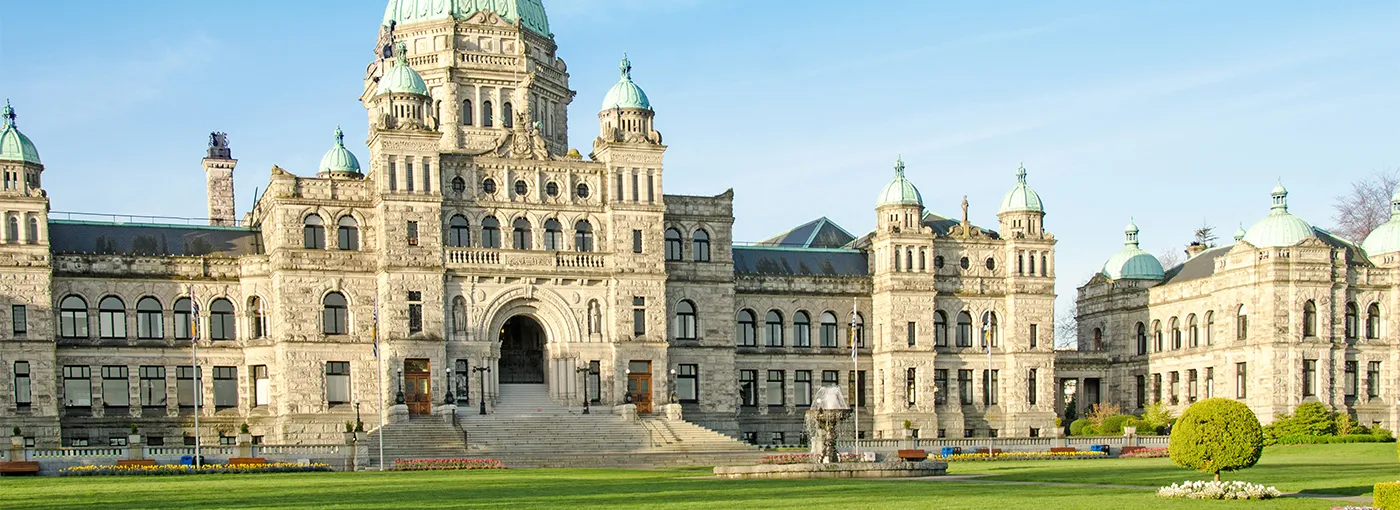

Voting day in BC is right around the corner and the polls are predicting it will be a very tight race. Here are some tax and investing moves you should consider as we head into the election.
Keep elections in perspective
Before we get into what the BC election could mean for investors, it’s worth mentioning something that should give us all some peace of mind: Elections generally have little lasting effect on the long-term direction of stock markets, which, over time, is up.
To see this in action, consider the decade from September 30, 2014, to September 30, 2024. The TSX Composite Index gained 60% in that time, and the S&P 500 did even better – up 190% – despite three Canadian federal elections and two provincial votes in BC, plus the two presidential elections and three midterm elections in the United States held in the same period.
When it comes to elections, the key to putting your worries to rest, then, is to stick to your financial plan. If yours is out of date (or if you don’t have a plan), one of the best ways to make sure you’re on the right track is to sit down with an advisor.
That said, there are some parts of our finances that could be affected by the provincial vote. Here’s what may be around the corner in the areas of taxation and housing, which are top of mind for many people – and a quick update for small business owners, too.
Elections shine a light on personal taxes
It’s no secret that British Columbia is running on a deficit, projected to be $7.9 billion in the province’s 2024-2025 fiscal year.
When it comes to controlling deficits, the governments have two levers available: raise taxes or cut spending. This is yet another reason why it always pays to ensure your investments are as tax-efficient as possible. Luckily, we have lots of tools to help us do so.
A good starting point: Tax-free savings accounts (TFSAs). You can’t deduct your contribution to TFSAs from your income, like with registered retirement savings plans (RRSPs), but your investments grow tax free in your TFSA, and you can withdraw from it at any time without paying tax.
You can contribute $7,000 a year to your TFSA, adjusted for inflation. Contribution room also carries forward, so if you were 18 or older when TFSAs were launched in 2009 and have been a Canadian resident since, you can now have contributed up to $95,000 to your TFSA. For couples, that comes out to $190,000 between them.
Consider also the first-home savings account (FHSA), to which you can contribute up to $8,000 a year, and you can carry forward up to that much to use in the next year, up to a lifetime maximum of $40,000. (Up to $80,000 for couples who each open an FHSA.) Unlike with TFSAs, FHSA contributions can be deducted from income at tax time.
Smart tax moves to make with your spouse (and possibly your kids)
Tax efficiency goes beyond TFSAs, FHSAs and the like, though. There are other things you can do within your family to reduce taxes.
For example, if you and your spouse have dramatically different income levels, consider lending your spouse the money (at the CRA prescribed rate) for them to invest. This way, it is taxed in the lower income earner’s hands. However, the higher income earner, would have to declare the interest on that loan as income. This strategy makes sense when the CRA prescribed rate is low (for years it was 2% or lower). You should discuss this idea with a tax or investment expert first.
Another option? If you’re planning to give your children an inheritance, consider doing so before your death. Canada has no tax on gifts, but there could still be tax issues around gifting investments and property, so your best option could be to sell these, pay the tax and give your kids the cash – perhaps to put in their FHSA (this way they’ll also get the tax deduction).
A side bonus? You get to see them enjoy your gift.
Note: Before shifting any funds or assets to a family member, speak with a lawyer, tax professional and a financial advisor so you’re clear on the tax ramifications.
Housing: Government policy is important, but interest rates are the real driver
Housing is obviously a key issue, with the average Metro Vancouver home price around $1.2 million, according to August 2024 figures from Greater Vancouver Realtors. Interest rates remain high – though they’re falling, with the Bank of Canada cutting rates three times since June.
Proposals on the campaign trail have included speeding up development by adjusting regulations and zoning; removing provincial income taxes from up to $3,000 per month a taxpayer spends on housing costs; and government financing of new builds sold to first-time buyers.
No matter the election result, keep in mind that with real estate, interest rates generally have more impact than government actions. As rates fall, mortgages become more affordable. (The caveat being that lower rates also usually put upward pressure on prices.) As well, lower rates make it easier for developers to finance new builds, adding to supply.
There is one group that indisputably benefits from lower rates, however: Homeowners with variable-rate mortgages. They’ve already seen payments drop 75 basis points, in line with Bank of Canada rate cuts, and those cuts are likely to continue.

Small business: Resource sector could benefit, but here again, interest rates reign
The campaign has seen little in the way of new policies aimed at small businesses as of this writing, but there is one sector that could benefit from some proposals we’ve heard on the trail: BC’s resource sector.
The parties have talked about the importance of funding new projects producing critical minerals such as copper, nickel and silver for the energy transition, as well as regulatory changes aimed at speeding up new projects. Both could help spur gains, for both miners and the companies that serve them.
But as with the real estate market, the prospects for BC small businesses will likely be driven chiefly by interest rates. If the Bank of Canada hits that “soft landing” everyone’s been talking about, small businesses will benefit from continued economic growth and lower borrowing costs, too.
The best way to ease election-related worries? Seek advice!
If you find short-term worries like election results are affecting your investment and financial decisions, reach out to an advisor to discuss your concerns. BlueShore Financial offers a team of financial, investment and business advisors who can help ensure your plan accounts for any short-term market events while keeping your long-term goals front and center. Reach out to us today.

Have a question? Ask an expert
Niall Dempsey Investment Advisor
Our team of experienced professionals are here to answer any questions you may have.